'These are the questions I'd ask my great-grandfather, who fought in the Somme'
- Published
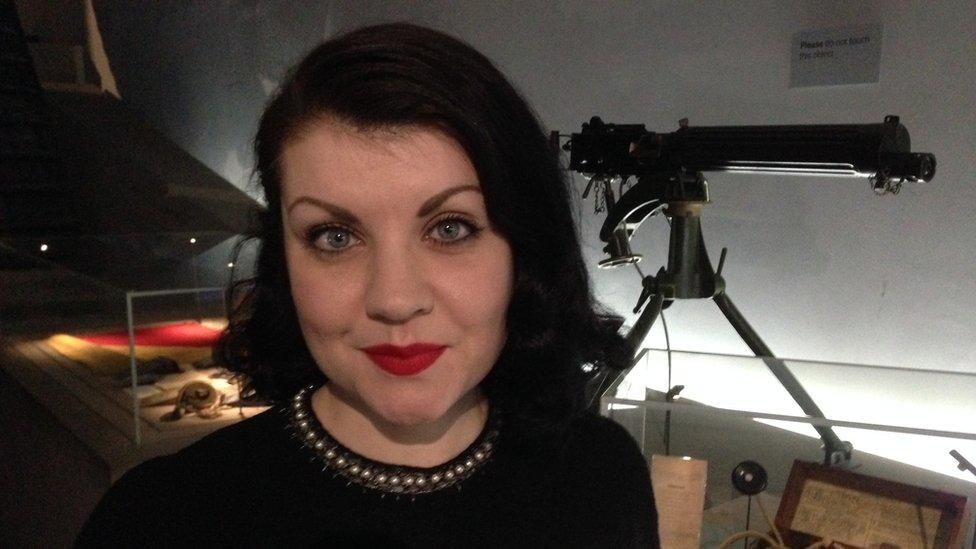
Jenny Leatherby's great-grandfather Alfred died on 1 August, one month into the Battle of the Somme
The Battle of the Somme during World War One (1914-1918) lasted nearly five months and caused more than one million British and German casualties.
On the first day alone, 1 July 1916, the British Army suffered 60,000 casualties with 20,000 men killed.
It is widely regarded as the worst day in British military history.
Services and commemorations have been held around the UK to mark the 100th anniversary of the start of the battle at exactly 7.30am on 1 July.
Jenny Leatherby's great-grandfather, Alfred Deadman, died during the battle when he was 28, the same age she is now.
Below, watch as Jenny asks the questions she'd like to put to him.
Jenny Leatherby's great-grandfather died in Somme
"I find it really hard to know what I feel about it," she says.
"Because I don't know if when he enlisted he did it because he felt it was something he really, really wanted to do.
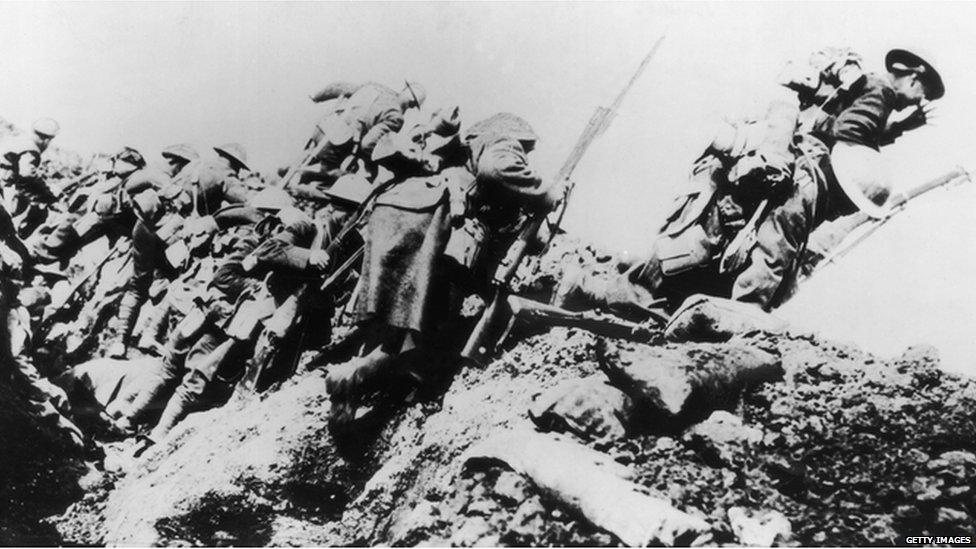
Soldiers go "over the top" on day one of the Battle of the Somme
"Or if it was something he felt he had to do".
Jenny's grandmother was four years old when her father, Jenny's great-grandfather, was killed.
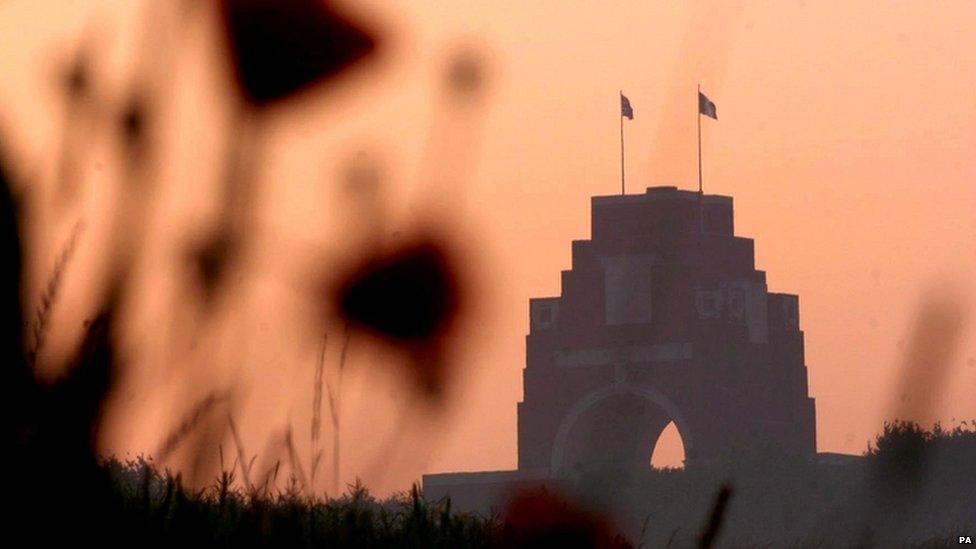
The sun rises over the Thiepval Memorial Monument in northern France which commemorates the battle of the Somme
"For his wife as well [it was] really tragic.
"How do you explain to a four-year-old why their father has died and how he's not coming home?"
The Battle of the Somme in northern France was meant to help relieve French troops locked in a vicious battle further south against other German troops.
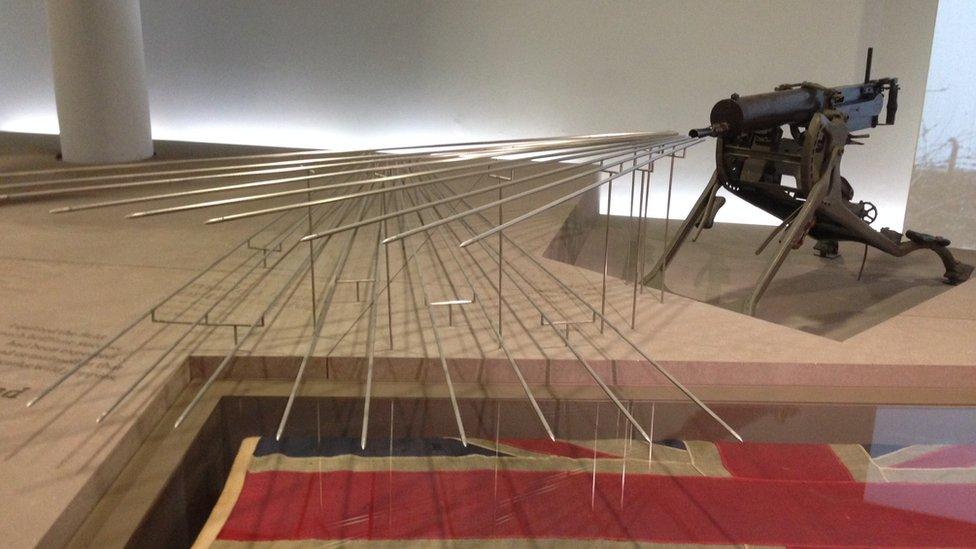
Machine guns, like this one now housed in the Imperial War Museum, killed thousands of people on the first day of the Somme
By the end of the battle, on 18 November 1916, more than one million Allied and German troops were killed or injured.
It had been fought along a 15-mile front and most casualties were caused by machine-gun fire or artillery.
In 141 days the British advanced seven miles and failed to break the German defence.
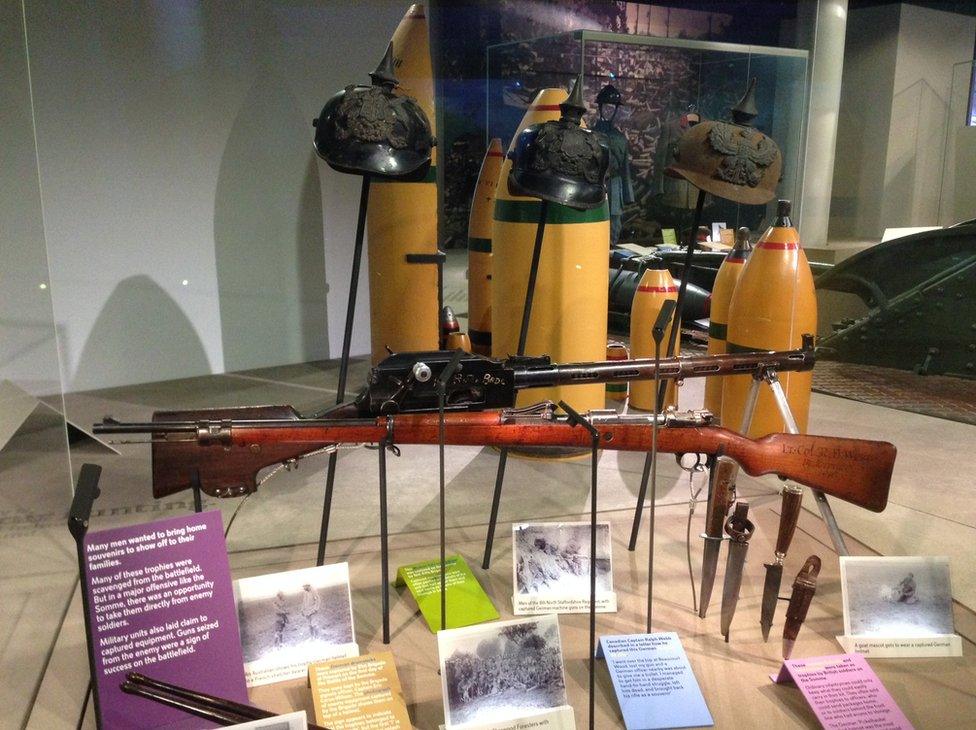
These are all items used at the Somme in World War One
Jenny says she has mixed emotions about the role which her great-grandfather played in the battle.
"I find it really difficult to put into words what I feel about it.
"[I'm] definitely proud that he was brave to go out there [but] really sad about what happened".
Find us on Instagram at BBCNewsbeat, external and follow us on Snapchat, search for bbc_newsbeat